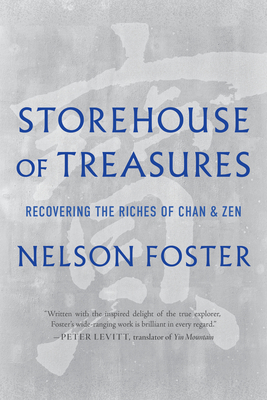
description
earths wise and beautiful elements of Chan and Zen still little known in the West, revealing unexpected aspects of the tradition and new implications for practice. Since the dawn of Chan and Zen in medieval China and Japan, members of these schools have enlivened their teaching by creatively adopting and adapting terms, images, principles, poetry, and lore native to their societies. Unfortunately, so much of that cultural wealth has been "lost in translation" that Western practitioners have barely begun to discover and appreciate this extraordinarily rich legacy. In Storehouse of Treasures, second-generation American Zen teacher Nelson Foster makes a series of adventuresome forays into the trove of material laid up by the Dharma ancestors, bringing to light:
- Masters' delight in playing with words, stories, and inherited Buddhist concepts, bending them to express the Dharma in inspired ways
- The powerful influence that Taoist and Confucian thought exerted in the formation of Chan and Zen
- The emphasis the two schools have laid on excellence of character as well as on profound awakening
- The experiential meaning and enduring importance to the tradition of ideals little associated with it today, like integrity, shame, and contentment
- How "knowing the tune" of a fellow student, a mentor, or a teacher of old lies at the heart of transmitting the Dharma
member goods
No member items were found under this heading.
Return Policy
All sales are final
Shipping
No special shipping considerations available.
Shipping fees determined at checkout.







